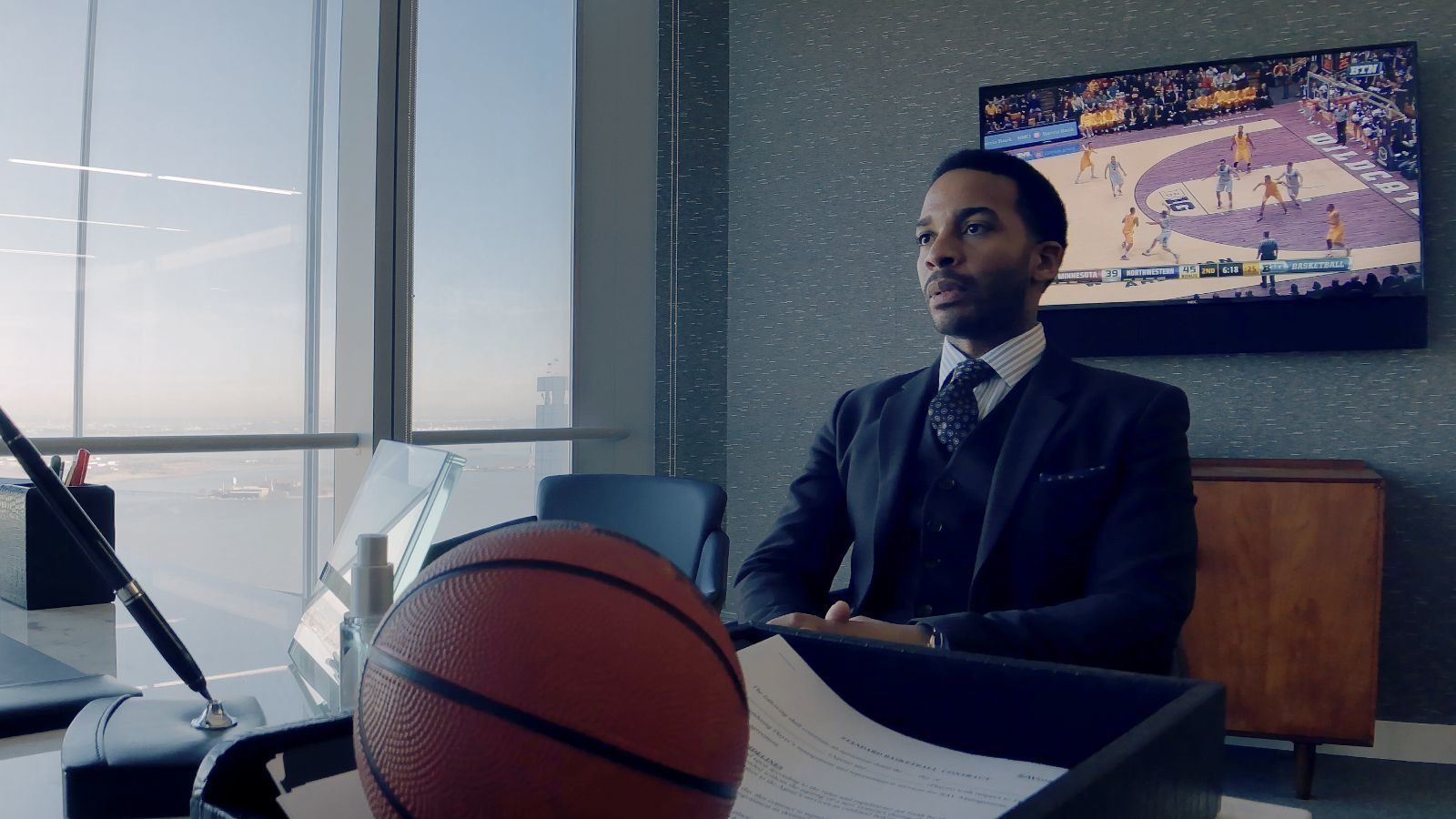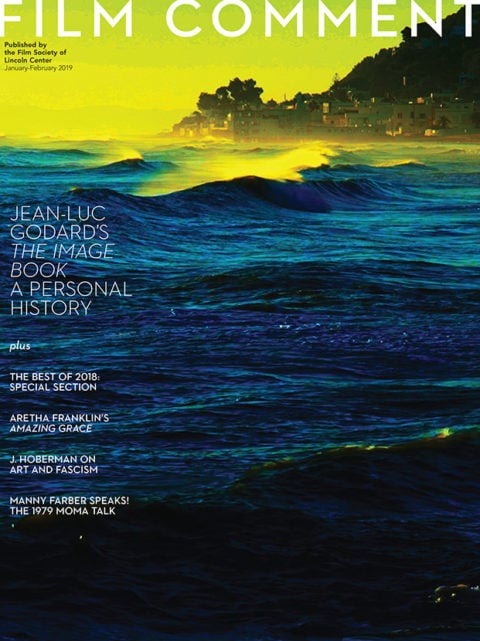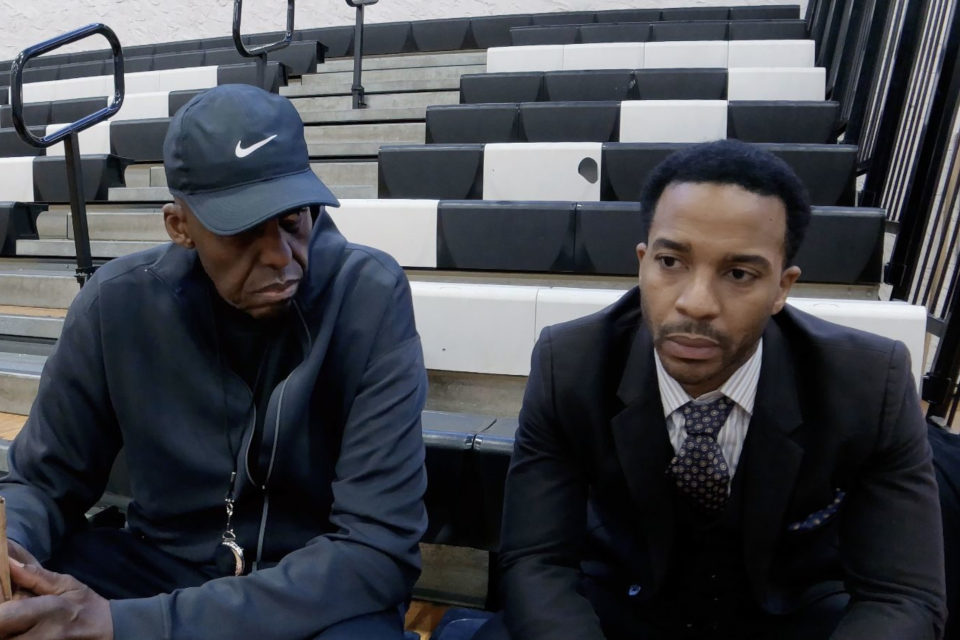By Mark Asch in the January-February 2019 Issue

The Big Screen: High Flying Bird
(Steven Soderbergh, USA, Netflix, Opening February 8)
With High Flying Bird, Steven Soderbergh discovers yet another profession whose practitioners’ for-hire physiques stand in for the gig-to-gig economics of his own creative hustle: to the martial-artist hit woman of Haywire, and the sex workers of The Girlfriend Experience and Magic Mike, add basketball players. His new film, for Netflix, ups the metaphorical ante in a couple of ways: High Flying Bird considers hoopsters as content creators in an entertainment industry upended by streaming sites, and as black laborers in a marketplace controlled by white owners. Touching down as Colin Kaepernick and others have prompted a more open discussion about pro sports as a “plantation,” High Flying Bird might attract more attention for Moonlight writer Tarell Alvin McCraney’s script than for Soderbergh’s latest recursive take on his own platform peregrinations. It amounts to a multifaceted consideration of freedom and agency.

From the January-February 2019 Issue
Also in this issue
Deep into an NBA work stoppage, with his clients’ paychecks frozen and the league’s next network-TV contract on the horizon as Netflix circles, agent Ray (André Holland) maneuvers to save his job, and indeed the soul of basketball. Set over Presidents’ Day weekend, High Flying Bird is a sports movie for sports fans hip to “the game behind the game,” with boardroom bluffs instead of ball fakes, as well as an echt-Soderberghian heist-movie structure with narrative elisions vacuum-sealed around flashbacks, and fascination with what happens after even “the smallest shift in the system.”
The system is one in which Ray and his assistant (Zazie Beetz) are just role players, supporting top draft pick Erick Scott (Melvin Gregg), including by composing his tweets as he beefs with a teammate-to-be. The hands and heart of Labor and Management—between whom Ray, despite his heartfelt love of the game, is trying less to mediate than find an angle—are embodied by players’ rep Sonja Sohn and League honcho Kyle MacLachlan (in genial old-money shark mode, never more so than when blowing a snot rocket in a sports-club sauna, white privilege summed up in a single GIF-in-waiting).
As he did last year’s Unsane, Soderbergh shot High Flying Bird on an iPhone, a choice with metatextual resonance—a freelancer-auteur making it work with a low overhead and nimble digital workflow—that also works aesthetically. The slimmed-down rig, ideal for handheld low-angle or following shots, and phone-on-the-table fisheye, gives a furtive, objective exposé-like texture to a Manhattan like Girlfriend Experience’s: all hard-edged, neutral spaces filled with nothing but circulating capital. This New York has absorbed much of the city of Ray’s mentor and conscience, Bronx basketball coach and neighborhood legend Spence (Bill Duke), a wizened wind-sprints hard-ass whose soft, raspy voice still mesmerizes with sometimes digressive, exposition-enlivening riffs on big business absorbing and commoditizing authentic black genius.

One such genius may be Scott, described by other characters (we barely see him, or anyone, play) as an NYC streetball-prodigy point guard of the Tiny Archibald–Stephon Marbury lineage—a slightly outdated hard-court archetype given the bigger players and emphasis on long-range shooting in today’s NBA, but one with a mythical resonance adjacent to the barnstorming ball-handling legends of the Harlem Globetrotters and the AND1 Mixtape Tour. Bricking on its verisimilitude about as frequently as LeBron James misses a free throw, High Flying Bird seems to compress the last decade or so of basketball history into its hour-and-a-half runtime: here is a viral infrastructure in which players can leverage online followings into becoming a celebrity independent of any franchise; snippets of on-court action are less highlights than memes instantaneously absorbed into digital discourse; and social-media clips of Scott fill the daytime sports-talk hours (though the cable punditocracy is here anachronistically portrayed as male-driven, sans, say, ESPN’s Rachel Nichols).
It’s a film abuzz with topicality, balancing perspectives on black identity and its link to entrepreneurship, personal branding, and “storytelling.” If the interviews with active NBA players Reggie Jackson, Karl-Anthony Towns, and Donovan Mitchell—interspersed throughout the film in Nike-ad black-and-white—add a veneer of corporate-friendly thoughtfulness in anticipation of a crossover to the sports section, it’s equally true that the film ends with a plea to stay woke and a plug for a book that’ll really change your outlook. Watch out for the final title card, which assigns the copyright to “Truth & Soul, Inc.”—the name of the Madison Avenue firm in Putney Swope, once it falls under new leadership.
Mark Asch has written about movies for Reverse Shot, The Village Voice, Little White Lies, and The Reykjavík Grapevine. He is the author of Close-Ups: New York Movies.







